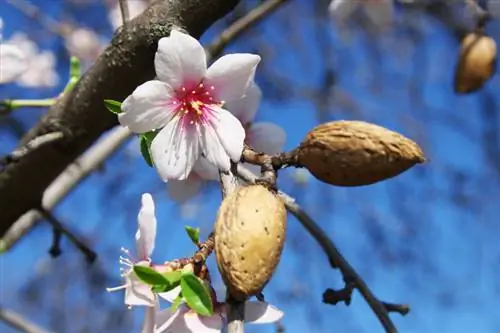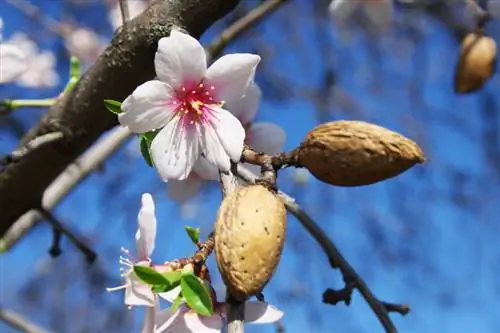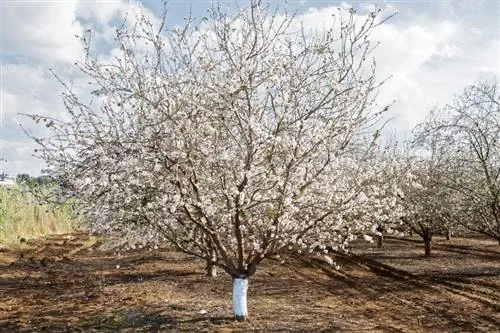- Author admin leonars@hobbygardeners.com.
- Public 2023-12-16 16:46.
- Last modified 2025-01-23 11:20.
With a little patience, the almond kernel will germinate successfully. As soon as the plant begins to grow upwards, the first hurdle has been overcome. In most cases, all further processes lead to success, even for beginners in gardening.

How can I grow an almond tree myself?
To grow an almond tree yourself, open the almonds in their shells slightly, plant them in nutrient-poor potting soil, and allow them to germinate at over 20°C and constantly moist soil. After germination, select strong shoots and continue to cultivate them individually in pots.
Growing the almond tree
Utensils:
- Almonds with shell
- Wood file or fretsaw
- growing soil
In the first step, the hard almond should be opened a little with a wooden file or alternatively with the help of a fretsaw. This allows the water to penetrate more quickly to the inside of the core. With the shell closed, this process would take up to several months.
Special soil is recommended for successful cultivation. It is characterized by its low-nutrient and air-permeable properties.
Since almond trees often grow on slopes with natural water drainage, a little sand or small stones can be mixed into the potting soil.
Germination of seeds
Place the prepared almond about 1 to 1.5 centimeters deep into the soil, moisten it and store it at constant temperatures above 20 degrees Celsius. A bright environment supports rapid growth.
Germination often takes several weeks. During this time, care should be taken to ensure that the soil is constantly moistened.
Caring for the sapling
Only the he althy and strong plants are selected for further processes. They are initially planted individually in pots. As the size increases, pots have proven effective for home-grown almond trees to thrive.
For sustainable growth, compost or alternatively horn shavings are added to the soil. These take on the function of an effective long-term fertilizer.
From now on, the little tree can be cared for in the same way as its larger counterparts. It is important to note that home-grown almond trees are particularly sensitive to cold.
Tips & Tricks
Home-grown almond trees are usually not hardy and do not offer a sweet harvest. However, these plants feel very comfortable in practical planters. They can overwinter frost-free in the dark cellar or winter garden.






